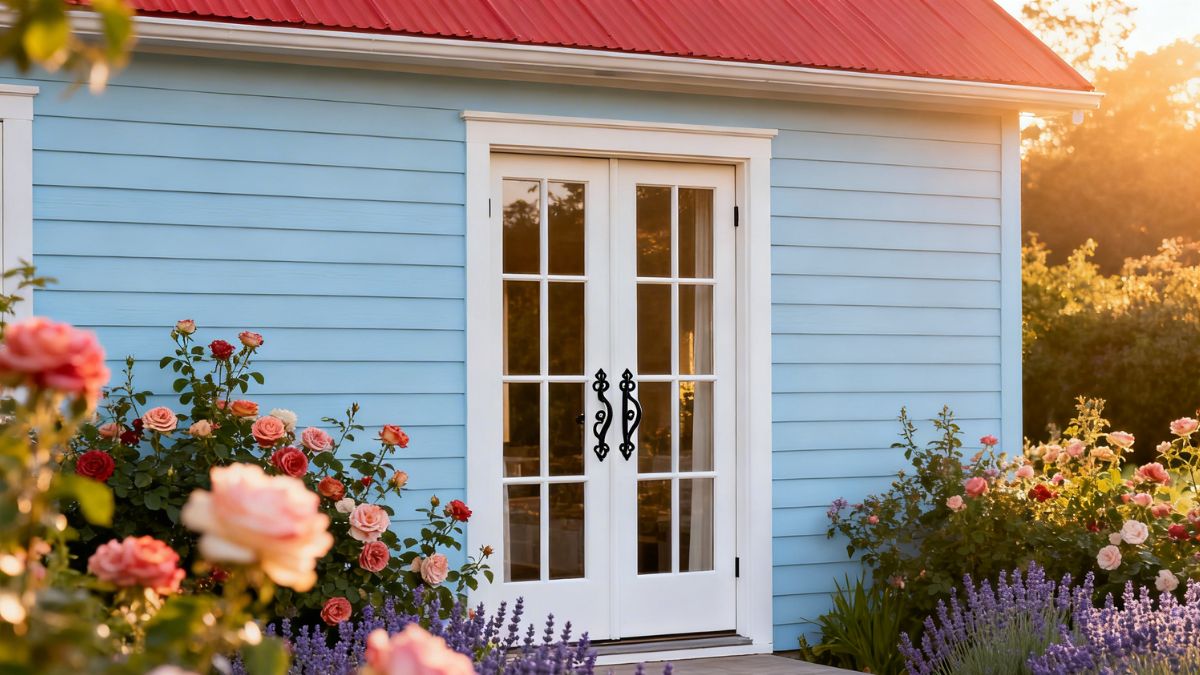Addressing Common Concerns and Myths About Composting Toilets

Image Source: Canva
You might worry about composting toilets being unsanitary and smelly, but those are just common misconceptions. When correctly maintained, these toilets are odorless, as aerobic bacteria and fungi decompose waste without any foul smell.
1. Composting toilets are odorless and sanitary when properly maintained.
2. They reduce water use and greenhouse gas emissions, supporting sustainability.
3. Installation is straightforward and they're easy to maintain without a plumber.
4. Though initially costly, they save money on water bills and maintenance long-term.
5. They are regulated and require checking local codes before installation.
Any pathogens are eliminated in the composting process, making the end product safe and nutrient-rich. They're not hard to install and effectively curb water consumption and reduce greenhouse gases.
While they may cost more initially, you'll end up saving on water bills and contributing to a greener future. Stick around to unearth more about the benefits and clear up any remaining doubts.
Understanding Composting Toilets
Diving into the world of composting toilets, you'll quickly discover that they're environmentally friendly systems, designed to break down waste into compost without the need for water. They're not just for campers or off-the-grid homes, but they're also gaining popularity in urban settings.
Inside the unit, aerobic bacteria and fungi decompose the waste, transforming it into a nutrient-rich soil amendment. You don't need any chemicals, and there's no sewage or wastewater produced, reducing pollution. You'll also conserve water, a precious resource.
It's important to understand that composting toilets require regular maintenance to function properly. If you're considering one for your home, you'll need to be comfortable handling the compost.
Composting Toilets Can Be Used During Extreme Weather Conditions
Yes, you can use composting toilets during extreme weather conditions. They're designed to handle various climates.
However, extremely cold temperatures might slow down the composting process, but it doesn't stop it entirely.
Composting Toilets Regulations
Yes, composting toilets are regulated. You'll find that rules vary by location. It's important you check local health codes, zoning laws, and building regulations before installing one to ensure you're not breaking any laws.
Fully Composting Waste in Composting Toilets
You're wondering about the composting time for waste in composting toilets. Generally, it takes between 2 weeks to a year, depending on factors like temperature, humidity, and the toilet's specific design and usage.
Disposing Compost From Composting Toilets
Yes, you've to follow certain steps when disposing compost from composting toilets.
It's essential to ensure the waste has fully composted before disposal. It's best used in non-edible garden areas for safety.
Accommodating the Needs of Individuals With Certain Physical Disabilities
Yes, you'll find composting toilets can accommodate those with physical disabilities. Manufacturers often design models with accessibility features like handrails or raised seating.
Always check the product's specifications to ensure it meets your specific needs.
Now, let's debunk some myths and misconceptions.
.jpg)
Debunking Hygiene Misconceptions
While it's clear that composting toilets have their benefits, you might still be harboring concerns about hygiene, so let's set the record straight.
You might think they're smelly or unclean, but in reality, they're neither. When maintained properly, composting toilets are odorless. They use natural processes to break down waste, and this process doesn't produce foul smells.
As for cleanliness, you're not in contact with the waste. The design of these toilets ensures that the waste is stored in a separate compartment, away from the user. Additionally, the composting process kills harmful pathogens, making the end product safe to handle.
Environmental Impact Explored
Often overlooked, the environmental impact of composting toilets is significantly positive and deserves your attention. These toilets drastically reduce water consumption because they don't require flushing. Imagine, you're saving up to 27% of household water usage!
They also prevent wastewater pollution, a major contributor to global water contamination. By composting human waste, you're converting it into a safe, nutrient-rich soil conditioner, reducing the need for chemical fertilizers.
Furthermore, they reduce greenhouse gases by cutting the energy used in treating and transporting sewage. So, if you're environmentally conscious, a composting toilet isn't just a viable choice; it's a sustainable one. It's a win-win, helping you do your bit for the planet while meeting your sanitation needs.
Addressing Installation and Maintenance
Let's debunk some myths about the installation and maintenance of composting toilets to ease your concerns.
You might think they're too complex to install, but that's not true. In fact, most composting toilets come with clear instructions, and you don't need a plumber to set them up. You can do it yourself, saving time and money.
As for maintenance, it's simpler than you might assume. Regularly add bulking material, empty the compost bin when it's full, and clean the unit as needed. There's no sewage or wastewater to handle.
Worried about smell? A well-maintained composting toilet is odorless. So, don't let these myths hold you back. Embrace this sustainable sanitation solution.
Composting Toilet: Cost Versus Benefit
Despite the initial cost, investing in a composting toilet can offer substantial benefits in the long run. Yes, upfront, they're pricier than traditional toilets. But think of it as an investment towards a greener future.
You'll save on water bills, as composting toilets use little to no water. Plus, you're reducing your environmental impact by limiting wastewater and generating nutrient-rich compost. This compost can be used in your garden, offering a natural, cost-effective fertilizer.
Maintenance costs also tend to be lower. There's no complex plumbing to worry about and most problems can be solved with simple DIY fixes. So, when you weigh the initial cost against potential savings and environmental benefits, a composting toilet isn't just a viable option, it's a smart one.
Conclusion
So, you've debunked some myths about composting toilets. They aren't unhygienic, they're positively impacting the environment, and maintenance isn't as tough as you'd imagined.
Yes, they might be a bit pricey upfront, but the long-term benefits and savings are undeniable. It's clear that composting toilets are a viable, sustainable option for modern living.
Go ahead, consider making the switch and contribute to a greener future.







.jpg)

